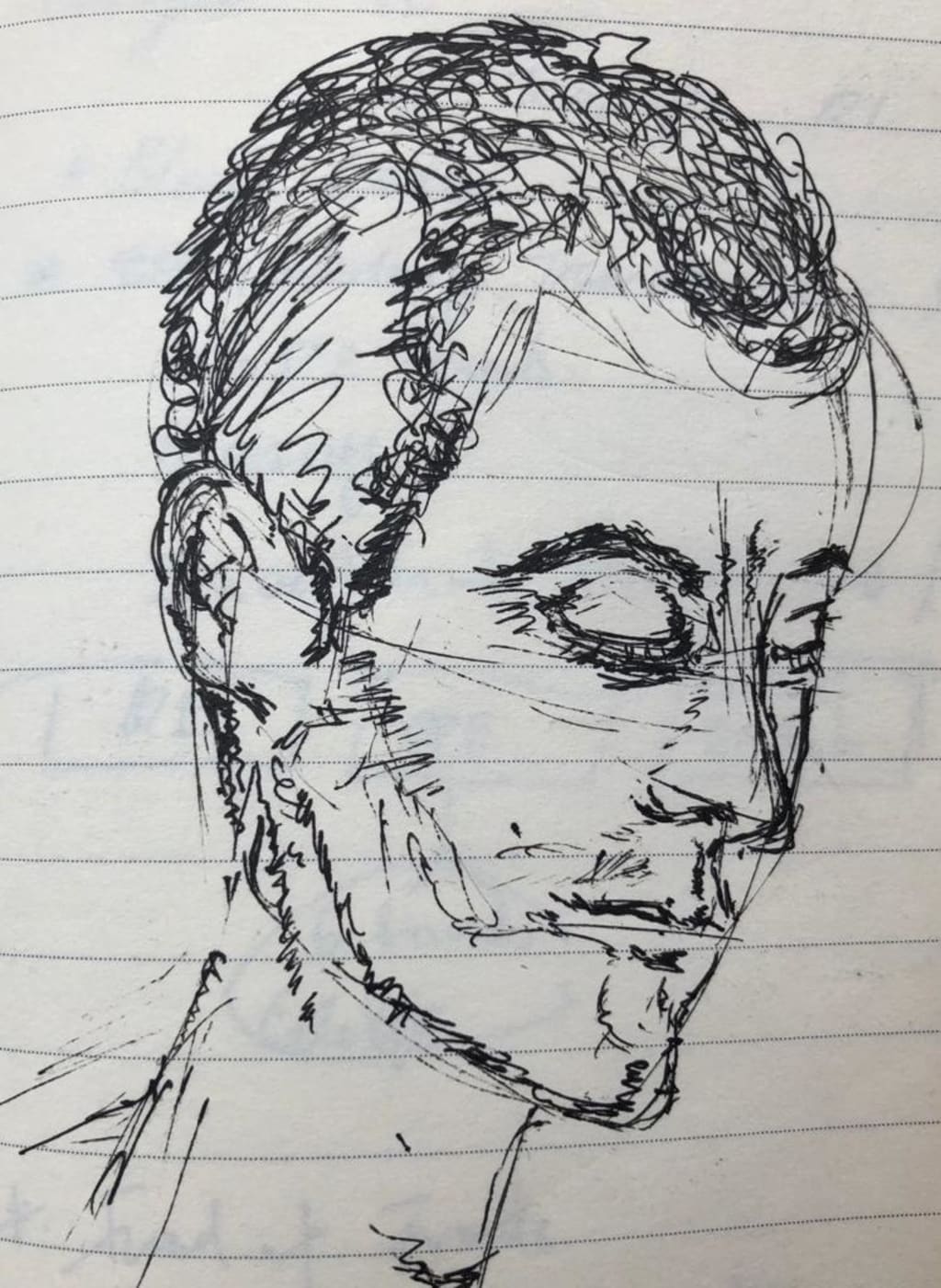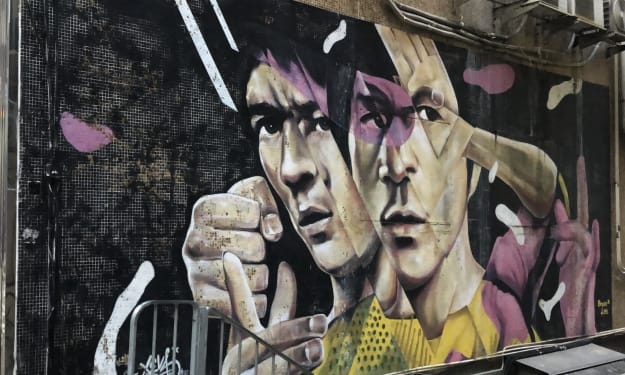Lifting the veil of sadness
Understanding the loneliness and isolation of daily life

There’s an undercurrent of loneliness and isolation to everyday life. Its intensity varies. It’s not always apparent, though it’s always with us. It might creep up on you while walking down a street full of people and feeling disconnected from everyone you see; or when you have an opportunity to speak one-on-one with an interesting colleague at work, but just can’t make the intimate connection you’d hoped; or when someone disappoints you and you feel despondent, weak, and humiliated.
I used to assume these feelings stemmed from having a fragile or underdeveloped ego, a depressive personality, or a more prosaic “emotional neediness.” But I’ve come to believe it’s actually a confrontation with the inherent, structural loneliness and isolation of existence. Seeing things from this perspective has allowed me to reinterpret moments that have been mildly traumatizing, and process them emotionally in a new and more productive way.
A meeting with a mentor at work could only have gone worse if we’d leapt across the conference room table to tear each other apart. I’d hoped to receive praise for my efforts to cultivate a substantial role for myself and help win and manage accounts. When she discounted most of what I was hoping she would laud, my mood sank. I tried to regain my composure and counter her criticisms decorously. But I met her implacable rejection: the work I’d done would not contribute meaningfully to our bottom line; upper management would scoff at my ideas for a new service offering; and no one cared about my ability to mentor colleagues. A sense of groundlessness overtook me. I couldn’t articulate or justify my outrage.
That feeling worsened as I ruminated over the encounter. I castigated myself for my inability to self-advocate, defend my ideas, ascend to a position of power from which I would be invulnerable to people like my mentor.
Reality, however, is far distant from any of those explanations. What it was, in retrospect, was a failure to achieve validation – not of my ideas and my ambition, but of my existence and the meaning of my existence in an elemental way. Because of the role that work plays in shaping our self-identity, I had entered that meeting, more so than other encounters, unconsciously seeking recognition that I’m alive and special and living a life with meaning. I need and seek this recognition to soothe the quotidian pain of living in a cold and impersonal universe that itself accords no special meaning to my life, or meaning whatsoever.
It’s as if these moments in life when we’re talking to other people – at work, ball games, concerts, restaurants, bars, or at home – we’re shouting into a pitch dark night and hoping to hear an echo that assures us there’s something out there that has heard us and is sending back a signal in which we can recognize ourselves and feel both less alone and less uncertain of our identity. But often we hear nothing. There is no echo. We are alone, even when we’re among others. That’s what I was feeling with my mentor. She offered no echo.
The psychotherapist Irwin Yalom attributes much of his patients’ neuroses to four existential realities: the certainty of death; the freedom and responsibility to curate one’s life; the meaningless inherent in life; and an implacable isolation from others. He strove to help patients confront isolation, recognize it as a source of anxiety, and use it as a wellspring of growth. Meditation, he said, was a way of lifting the veil of physical reality around us and confronting isolation.
Walking the crowded streets of Central Hong Kong, I’m reminded of what Soren Kierkegaard said about Christianity. A devout Christian, he believed in having an entirely personal, individual relationship with Christ. There was no role for a communal aspect to religion. The fact that other Christians exist in the world was entirely incidental to him. It had no bearing on his faith or his relationship with Christ.
As with Kierkegaard and other Christians, the people around us go about their day fundamentally disconnected from us – no words, actions, level of agreement or disagreement can fully overcome that. Their presence on earth – on Fifth Avenue in New York City or the Champs-Élysées in Paris or Queen’s Road Central in Hong Kong – is merely incidental.
This is what I’m feeling when things don’t go my way, or I cannot make an emotional connection with someone. It’s not a bruised ego or a remnant of my childhood psychology that craves affection and validation. It’s a facet of cosmic reality, the pain that comes from confronting the unbridgeable divide between us all – friends, family, spouses, acquaintances, lovers, colleagues, or enemies.
I have felt this pain throughout my life, with friends and colleagues at work. One person who was both friend and colleague, stands out in my mind. I admired this colleague, David. He was well traveled, spoke French fluently, had been to prestigious universities for college and law school, and was clever and well dressed. We worked long hours together. Occasionally we would go for lunch, and in those moments I sought a connection with him. That connection forever eluded me. I would walk back from our lunches downcast because I was too shy, too insecure to show him who I was besides the person I bring to work each day, and had equally failed in conjuring forth whoever he was beyond the well suited account leader.
All of the effort we make to connect with people is like trying to shine a light in that blackness, hoping to find our way to a meaning and find others along the way and commune with them. We dress in that hope. We construct reality in that hope. We choose jobs and partners in that hope. But strip that all away and what’s left with is the simple fact that we exist in a mostly dark cosmos, illuminated only in parts by suns that will eventually expire.
It’s similar to staring at the lines and voids in a Piet Mondrian painting. The painting could be a tree, or a landscape, or a cityscape. He stripped away the surface structure and revealed the elemental geometry underneath.
When we strip away the surface structure of life, we see the elemental reality underneath: the blackness of space and our existence within it. Any attempt to imbue it with meaning is heart-breakingly futile.
I realize now that this sense of isolation explains much of my angst with other people. It’s not social anxiety. It’s not a lack of serotonin. It’s not because I’m socially maladjusted or have never outgrown childhood nerouses. It’s not narcissism. There’s no psychiatric cure for what I feel.
Isolation is what I experience when I’m standing on a street corner next to my brother, a person very dear to me, and can’t figure out what to say to imbue the moment with meaning and sentiment because we live on different continents and the times we’re together are so brief and rare; when I’m sitting across the table from a colleague, having lunch casually with no need to talk about work and yet all we talk about is work or the weather; and when I’m walking home from work, free from the day’s toils and more eager and capable of connecting with people, and yet I reach home without having spoken to anyone although I’ve passed stores, restaurants, bars, and apartment complexes brimming with people.
And isolation is what I feel when I look back on my life and struggle to feel a connection with the person I was decades ago. He too – that past incarnation – lies beyond connection and understanding, as elusive as the stranger sitting next to me on a bus.
Seeing things from this perspective allows for catharsis, relief from self-criticism, and greater understanding of life’s existential predicament. Loneliness and isolation remain, but the sadness they induce recedes. The veil has been lifted.





Comments
There are no comments for this story
Be the first to respond and start the conversation.